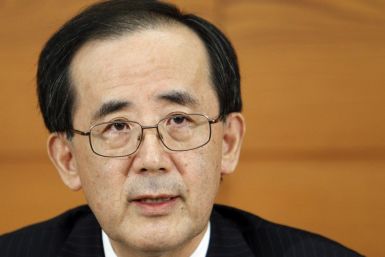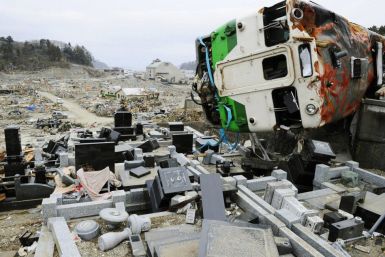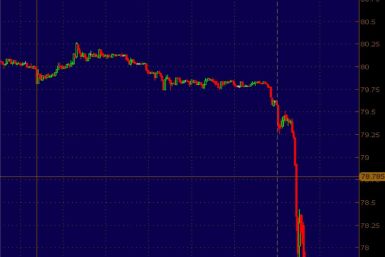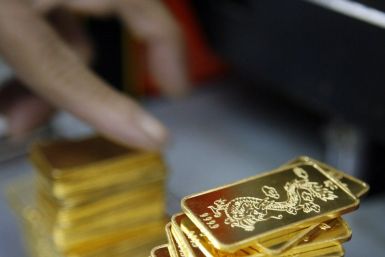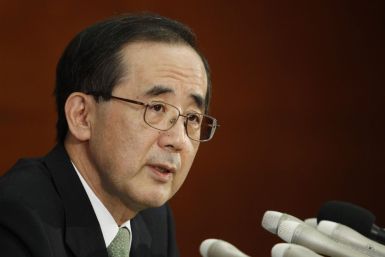Bank of Japan Governor Masaaki Shirakawa said on Saturday that the country's economic outlook was very severe and that the central bank would take appropriate action to support the economy.
The Bank of Japan is expected to sharply cut its economic forecast for the current fiscal year due to last month's devastating earthquake but project a rebound in the autumn, signaling that it has eased monetary policy enough to keep the economy afloat at least for now.
Bank of Japan Governor Masaaki Shirakawa said the country's economy will likely shrink in the first half of 2011 due mainly to stalled output in the wake of Japan's March 11 earthquake and tsunami, the Wall Street Journal reported on Saturday.
Japan's exports fell in March at a faster pace than economists expected, in a sign that shipments will continue to weaken and hurt economic growth after last month's earthquake and tsunami sparked a nuclear crisis and disrupted supply chains for many manufacturers.
Japan's fragile post-disaster political truce unraveled on Thursday as the head of the main opposition party called on unpopular Prime Minister Naoto Kan to quit over his handling of the country's natural calamities and a nuclear crisis.
Japan's government has downgraded its assessment of the economy for the first time in six months to reflect last month's devastating earthquake and tsunami, while wholesale prices rose at the fastest pace in more than two years in an ominous sign for company profit margins.
The economic damage from Japan's massive earthquake and tsunami last month is likely to be worse than first thought as power shortages curtail factory output and disrupt supply chains, the country's economics minister warned on Tuesday.
Bank of Japan Governor Masaaki Shirakawa on Monday reiterated that Japan's economy is likely to return to a recovery path once supply constraints caused by last month's earthquake and tsunami ease, and as exports grow.
Big Japanese manufacturers expect conditions to worsen significantly in the next three months, responses to a Bank of Japan survey collected after the March 11 earthquake showed on Monday. It was a reversal of the full survey results.
Japanese business morale improved slightly in the three months to March, the Bank of Japan's closely watched tankan survey showed, but the devastating earthquake earlier this month and a subsequent nuclear crisis are seen hurting confidence in coming months.
Japanese manufacturers' business sentiment improved slightly in the three months to March, the Bank of Japan's closely watched tankan survey showed, but analysts anticipate a downturn in confidence this quarter following last month's devastating earthquake and tsunami and subsequent nuclear crisis.
Japanese business morale improved slightly in the three months to March, the Bank of Japan's closely watched tankan survey showed, but the devastating earthquake earlier this month and a subsequent nuclear crisis are seen hurting confidence in coming months.
The Bank of Japan (BOJ) should be much more aggressive, said Paul Sheard, global chief economist of Nomura Securities.
The financial impact to Japan from last week’s earthquake-tsunami could be as high as $235-billion, according to a report issued on Monday by the World Bank.
Bank of Japan Governor Masaaki Shirakawa reiterated the central bank's resolve to maintain its ultra-easy monetary policy following Friday's Group of Seven agreement to join in a rare coordinated intervention to restrain soaring yen.
The Japanese yen surged to an all-time high against the US dollar late Wednesday (New York time) as it surged over 340 pips, or 4.2 percent, against the US dollar in a span of roughly 30 minutes.
The Gold Price ticked higher in London trade on Wednesday, holding above yesterday's 4-week lows to reach $1400 per ounce, as a rally in Japanese shares failed to prevent further losses in global stock markets.
Rock star Bryan Adams exhorted the world's musicians to organize a concert for Japan, which is reeling from the worst disaster in recent history.
The Bank of Japan on Tuesday offered to pump 5 trillion yen ($61 billion) into the banking system, continuing its huge fund injection aimed at easing market jitters amid escalating damage from the earthquake.
Gold Bullion prices jumped at the start of Asian trade on Monday, gaining 1% against all major currencies as news broke that a third nuclear reactor north-east of Tokyo has gone into meltdown following last week's Japanese tsunami.
The Bank of Japan (BOJ) said on Monday it will increase the size of the asset purchase program from five trillion yen to 10 trillion yen and promised to inject additional liquidity into the financial system battered by the triple whammy of a disastrous earthquake, a tsunami and an unfolding nuclear crisis.
The Bank of Japan (BOJ) said on Monday it will increase the size of the asset purchase program from five trillion yen to 10 trillion yen and promised to inject additional liquidity into the financial system battered by the triple whammy of a disastrous earthquake, a tsunami and an unfolding nuclear crisis.






